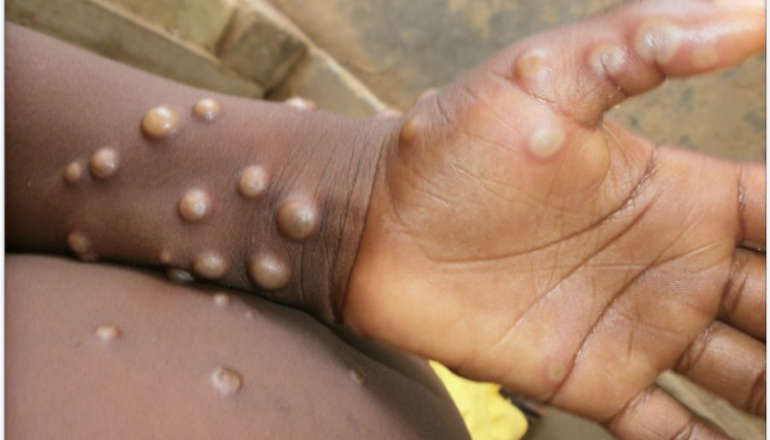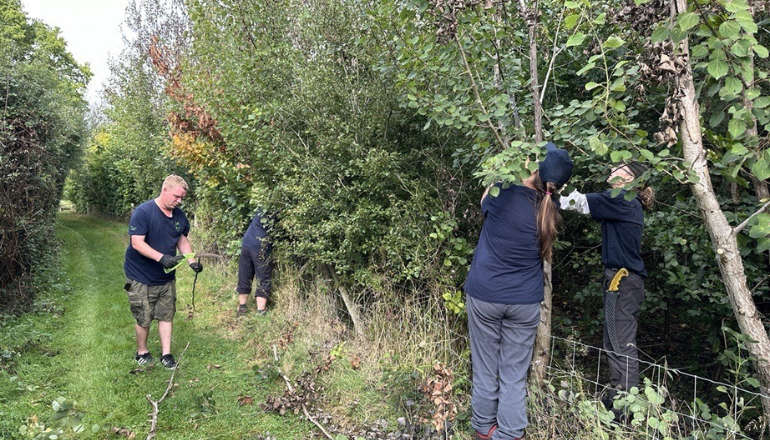
Two people have been diagnosed with monkeypox in London, the UK Health Security Agency (UKHSA) has confirmed.
Sky News reports that the pair live in the same household and are not linked to another person who was diagnosed with the disease in England earlier this month.
The viral infection is similar to human smallpox and usually causes mild illness, with most people recovering within a few weeks.
One of the latest people to test positive is being treated at the expert infectious diseases unit at St Mary's Hospital, Imperial College Healthcare NHS Trust in London.
However, the other person is isolating and does not require hospital treatment, the UKHSA said.
Health officials said they are now investigating where and how the latest cases were infected.
They also said people who might have been in close contact with the two people are being contacted and given health advice.
Dr Colin Brown, director of clinical and emerging infections at the UKHSA, noted that it is important to remember the infection "does not spread easily between people and requires close personal contact" with someone who is symptomatic.
"The overall risk to the general public remains very low," he added.
The case announced earlier this month was a person with a recent travel history from Nigeria, which is where they were believed to have contracted the infection.
At the time, the person was said to be receiving care at the infectious diseases unit at Guy's and St Thomas' NHS Foundation Trust in London.
What are the symptoms?
The initial symptoms of monkeypox include fever, headache, muscle aches, backache, swollen lymph nodes, chills and exhaustion, according to the UKHSA.
A rash can also develop, which changes and goes through different stages before forming a scab, which later falls off.
According to the NHS, it is mainly spread by wild animals in parts of west or central Africa and the risk of catching it in the UK is very low.
According to Public Health England, the infection was first discovered in 1958 when outbreaks of a pox-like disease occurred in monkeys kept for research.
It was not until 1970 that the first human case was recorded.


 ‘A Kick In The Teeth For Lewes’: Lib Dem MP Expresses Disappointment Over Bus Station Loss
‘A Kick In The Teeth For Lewes’: Lib Dem MP Expresses Disappointment Over Bus Station Loss
 Results For Worthing’s Bathing Water Sites Revealed
Results For Worthing’s Bathing Water Sites Revealed
 £100,000 Robbery Of Bexhill Mobile Phone Store
£100,000 Robbery Of Bexhill Mobile Phone Store
 Organisations In Wealden Receive Funding To Help Tackle Inequalities In Physical Activity
Organisations In Wealden Receive Funding To Help Tackle Inequalities In Physical Activity
 Festive Children’s Stories Brought To Life With Interactive Story Session
Festive Children’s Stories Brought To Life With Interactive Story Session
 Jail Time For Shop Owner Who Sold Illegal Tobacco
Jail Time For Shop Owner Who Sold Illegal Tobacco
 Funding Boost For Community-Led Waste Prevention Projects In West Sussex
Funding Boost For Community-Led Waste Prevention Projects In West Sussex
 Newhaven RNLI Welcomes Quartet Of Mayors To Share Gratitude
Newhaven RNLI Welcomes Quartet Of Mayors To Share Gratitude
 University Of Brighton Launches Health Innovation Hub To Tackle Health Challenges
University Of Brighton Launches Health Innovation Hub To Tackle Health Challenges
 New Residential Care Home For Disabled Children In Brighton
New Residential Care Home For Disabled Children In Brighton
Comments
Add a comment